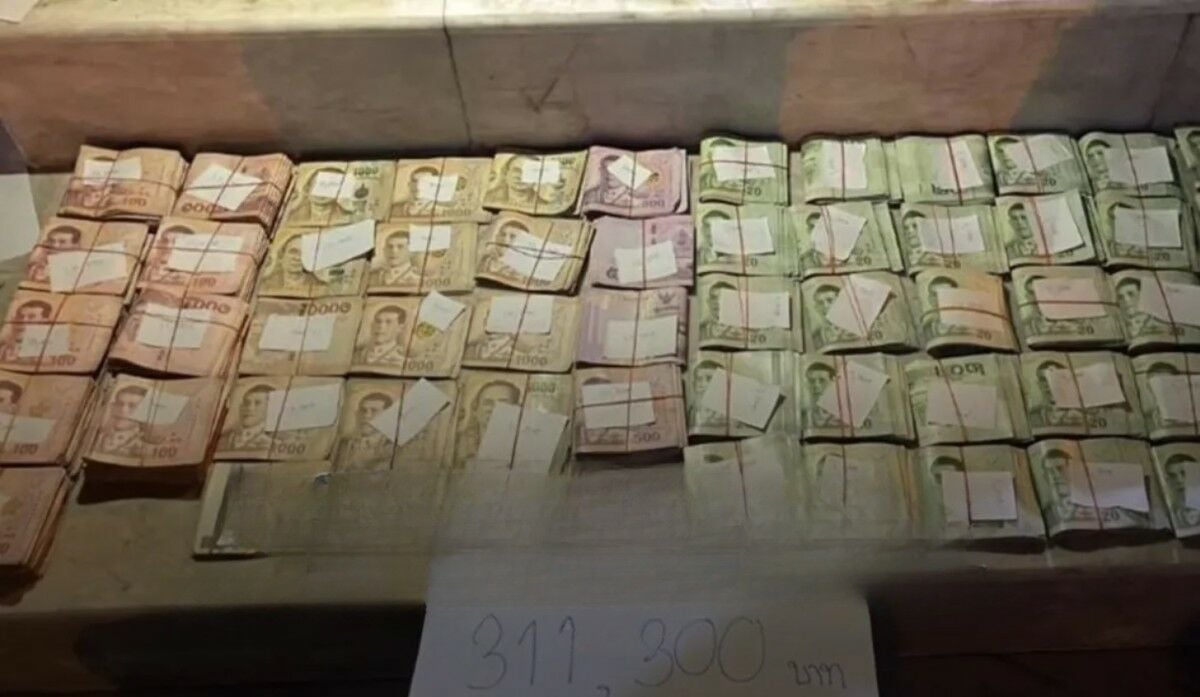Bangkok police dismantle begging ring, uncover 300k baht cash

Thai police dismantled a begging ring in the heart of Bangkok, discovering 300,000 baht in cash and an astonishing bank account balance. The generosity of the Thai people was evident in the amassed funds.
Deputy Superintendent Suriya Puangsomboon led a team of Immigration Police Division 1 investigators, working alongside the Bangkok Homeless Protection Centre and Lumphini Police Station on Thursday, December 12. They conducted inspections in the Sukhumvit economic district, from Asoke intersection to Nana district. This operation followed reports from the public about a significant number of beggars affecting Thailand’s image.
The investigation led to the arrest of eight Thai nationals charged with engaging in begging activities. Additionally, two Cambodians, one Laotian, and one Burmese were apprehended for entering and residing in the kingdom without permission and engaging in begging.
During the arrests, a Thai woman was found with over 300,000 baht in cash, accumulated through begging. Her bank account showed deposits amounting to approximately 1 million baht. The arresting officers handed all suspects over to the Lumphini Police Station for further legal proceedings.
“The amount of money discovered was truly shocking. It demonstrates both the effectiveness of the begging ring and the incredible generosity of the Thai people.”
Another incident involved a blind mother who, together with her seven year old daughter, was found begging in a local market. The daily earnings of this duo left many Thai citizens surprised.
This operation is a part of ongoing efforts to ensure public spaces are welcoming for both residents and visitors. The authorities reiterated their commitment to tackling illegal activities that tarnish the country’s reputation.
The arrested foreigners face charges related to illegal entry and will be processed according to immigration laws. Meanwhile, the Thai nationals will be dealt with under the Anti-Begging Act, reflecting the seriousness with which the authorities treat such offences, reported Sanook.
“Our goal is to maintain the safety and integrity of public areas. We encourage citizens to report suspicious activities to help us keep our communities safe.”
What Other Media Are Saying
- South China Morning Post highlights Thailand’s intensified crackdown on begging, emphasising the government’s struggle against the lucrative practice despite potential deportations and vocational training for offenders. (read more)
Frequently Asked Questions
Here are some common questions asked about this news.
Why do begging networks thrive in urban areas despite strict laws?
Begging networks exploit systemic loopholes and public generosity, making them resilient against traditional law enforcement.
How does public generosity inadvertently support organised begging rings?
Generous donations unintentionally finance and sustain begging operations, highlighting the need for targeted support strategies.
What if communities actively participated in monitoring and reporting suspicious activities?
Increased community vigilance could deter illegal activities, enhancing public safety and urban integrity.
How might the dismantling of begging rings impact Thailand’s international reputation?
Successful operations could improve Thailand’s image, showcasing commitment to maintaining order and visitor-friendly environments.
What are the challenges police face in balancing compassion and law enforcement?
The police struggle to support genuine need while curbing exploitation, requiring nuanced approaches and community cooperation.
Latest Thailand News
Follow The Thaiger on Google News:


























